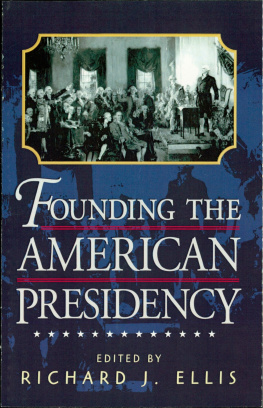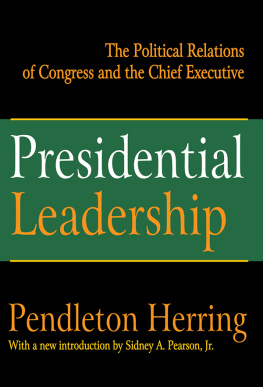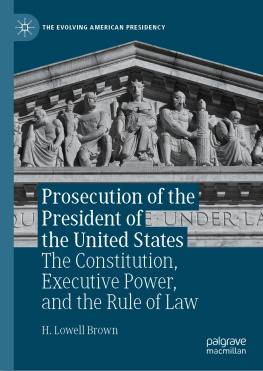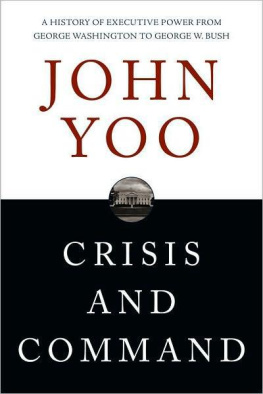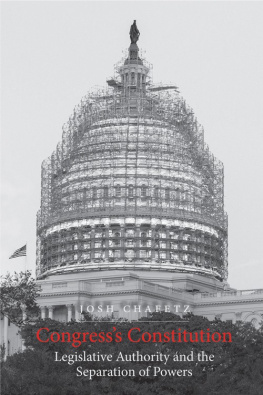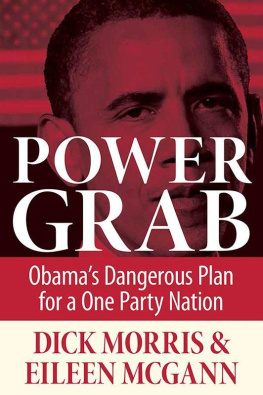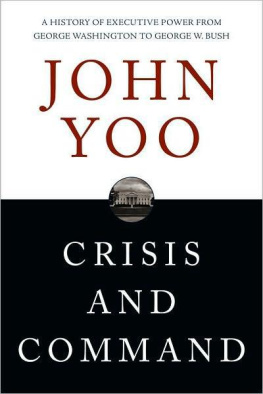Andrew C McCarthy - Faithless Execution: Building the Political Case for Obama’s Impeachment
Here you can read online Andrew C McCarthy - Faithless Execution: Building the Political Case for Obama’s Impeachment full text of the book (entire story) in english for free. Download pdf and epub, get meaning, cover and reviews about this ebook. year: 2014, publisher: Encounter Books, genre: Politics. Description of the work, (preface) as well as reviews are available. Best literature library LitArk.com created for fans of good reading and offers a wide selection of genres:
Romance novel
Science fiction
Adventure
Detective
Science
History
Home and family
Prose
Art
Politics
Computer
Non-fiction
Religion
Business
Children
Humor
Choose a favorite category and find really read worthwhile books. Enjoy immersion in the world of imagination, feel the emotions of the characters or learn something new for yourself, make an fascinating discovery.

- Book:Faithless Execution: Building the Political Case for Obama’s Impeachment
- Author:
- Publisher:Encounter Books
- Genre:
- Year:2014
- Rating:3 / 5
- Favourites:Add to favourites
- Your mark:
Faithless Execution: Building the Political Case for Obama’s Impeachment: summary, description and annotation
We offer to read an annotation, description, summary or preface (depends on what the author of the book "Faithless Execution: Building the Political Case for Obama’s Impeachment" wrote himself). If you haven't found the necessary information about the book — write in the comments, we will try to find it.
The authors of the Constitution saw practical reasons to place awesome powers in a single chief executive, who could act quickly and decisively in times of peril. Yet they well understood that unchecked power in one persons hands posed a serious threat to liberty, the defining American imperative. Much of the debate at the Philadelphia convention therefore centered on how to stop a rogue executive who became a law unto himself.
The Framers vested Congress with two checks on presidential excess: the power of the purse and the power of impeachment. They are potent remedies, and there are no others.
It is a straightforward matter to establish that President Obama has committed high crimes and misdemeanors, a term signifying maladministration and abuses of power by holders of high public trust. But making the legal case is insufficient for successful impeachment, leading to removal from office. Impeachment is a political matter and hinges on public opinion.
In Faithless Execution, McCarthy weighs the political dynamics as he builds a case, assembling a litany of abuses that add up to one overarching offense: the presidents willful violation of his solemn oath to execute the laws faithfully. The fundamental transformation he promised involves concentrating power into his own hands by flouting lawstatutes, judicial rulings, the Constitution itselfand essentially daring the other branches of government to stop him. McCarthy contends that our elected representative are duty-bound to take up the dare.
What are High Crimes and Misdemeanors?
Impeachment is rare in American historyand for good reason. As the ultimate remedy against abuse of executive power, it is politically convulsive. And yet, as the Framers understood, it is a necessary protection if the rule of law is to be maintained.
But what are impeachable offenses? There is widespread confusion among the American people about the answer to this question.
Article II of the Constitution lists treason and bribery, along with other high crimes and misdemeanors as the standard for impeachment. Despite what crimes and misdemeanors connote, the concept has precious little to do with violations of a penal code. Rather, it is about betrayal of the political trust reposed in the president to execute the laws faithfully and preserve, protect and defend our constitutional system, as his oath of office requires.
At the constitutional convention in 1787, the delegates concurred that the high crimes and misdemeanors standard captured the many great and dangerous offenses involving malfeasance, incompetence, and severe derelictions of duty that could undermine the constitutional order.
The Framers were clear that high crimes and misdemeanors involved misconduct that did not necessarily break penal laws; it might not even be considered criminal if committed by a civilian. It would apply strictly to the misconduct of public men or the abuse or violation of public trust, as Alexander Hamilton put it. High crimes and misdemeanors are of a purely political nature as they relate to injuries done immediately to the society itself.
To be clear, high crimes and misdemeanors is not a standard conceived for normal law enforcement. It applies instead to oath, honor, and trustnotions that are more demanding of public officials than the black and white prohibitions of criminal law.
While the standard is high-minded it is not an abstraction. The Framers were very clear: betrayals of the constitutional order, dishonesty in the executives dealing with Congress, and concealment of dealings with foreign powers that could be injurious to the American people were among the most grievous, and impeachable, high crimes and misdemeanors.
Above all, the Framers had in view the presidents oath of allegiance to our system of government, a system in which the presidents highest duty is faithful execution of the laws. The mere attempt to subvert the constitution would be a breach of trust that warranted impeachment and removal.
A free country requires the rule of law. But the rule of law is a sham if lawlessness is rampant among those who govern. This was the deep political truth that the Framers of this country recognized in the providing for the impeachment of an errant executive. It is a truth that we ignore at our peril.
Faithless Execution Author Q&A
You are a well-known conservative commentator how would you answer the accusation that Faithless Execution is just a partisan stunt?
McCarthy: Well, conservative does not mean Republicanin fact, the book is not very flattering when it comes to GOP fecklessness in the face of the presidents lawlessness. But the main point is: Faithless Execution argues against partisan hackery. I analyze the legal case for impeachment as a former prosecutor who would not go to court without a sufficient case. And as far as the politics goes, I argue that, despite the sizable majority Republicans hold in the House, articles of impeachment should not be filed unless and until there is a strong public will to remove the president from powerone that transcends party lines.
Many Republicans say an effort to impeach Barack Obama is political suicide for the Republican Party. How do you respond to this?
McCarthy: The failure to pursue impeachment is likely to be suicide for the country, which is much more important than the political fate of the Republican Party. But, again, making the case for impeachmentwhich would probably help not only Republicans but any elected official who defends our constitutional frameworkis not the same as moving forward with articles of impeachment, which should not happen absent public support.
How does the case for Barack Obamas impeachment compare to the campaigns to impeach Nixon and Clinton?
McCarthy: Obamas presidency is a willful, systematic attack on the constitutional system of separation of powers, an enterprise that aims to bring about a new regime of government by executive decree. This is exactly the kind of subversion the Framers designed the impeachment power to address. The Nixon and Clinton episodes involved misconduct that did not aim to undermine our constitutional framework.
You describe impeachment as a political and not a legal remedy. Whats the distinction?
McCarthy: Legally speaking, a president may be impeached for a single offense that qualifies as high crimes and misdemeanorsa breach of the profound public trust vested in the president, a violation of his constitutional duty to execute the laws faithfully. But real impeachment requires the public will to remove the president from office. You can have a thousand impeachable offenses, but without that political consensus, impeachment is not an appropriate remedy.
Andrew C McCarthy: author's other books
Who wrote Faithless Execution: Building the Political Case for Obama’s Impeachment? Find out the surname, the name of the author of the book and a list of all author's works by series.



